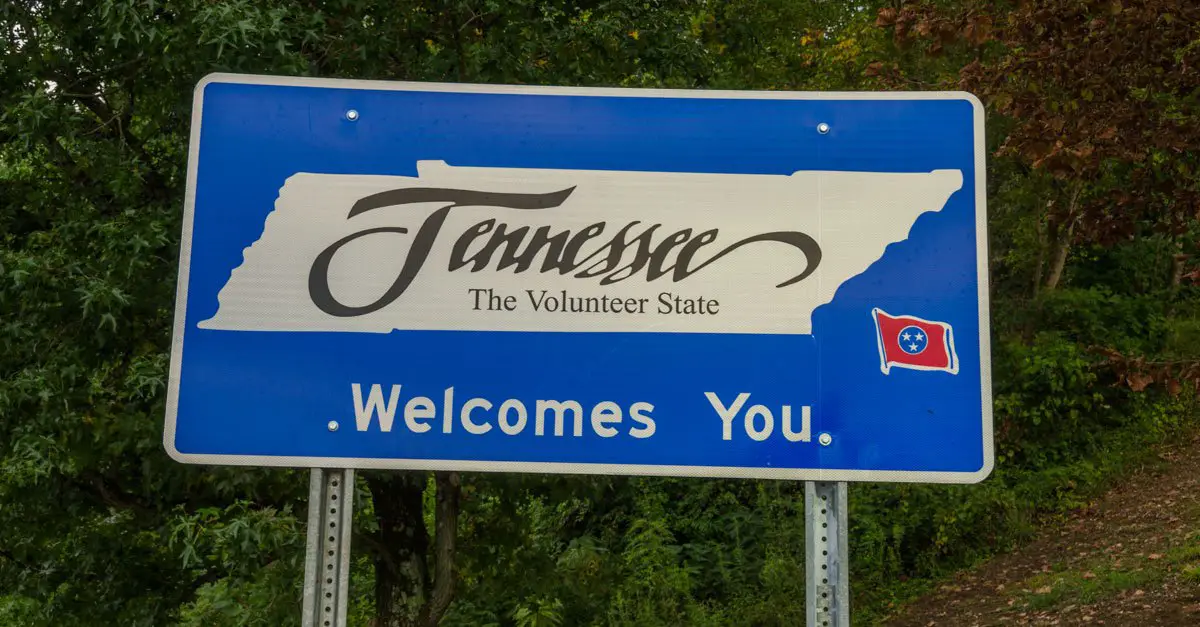Planning For The Chapter 7 Homestead Exemption
Even if you are not currently behind on your mortgage, filing bankruptcy may help you keep your house by discharging other debts such as credit cards and medical bills so that they do not interfere with your ability to make your future mortgage payments. This can be done by taking advantage of the Tennessee homestead exemptions provided by Chapter 7 bankruptcy.
The Tennessee homestead exemption allows people to file Chapter 7 bankruptcy and keep their homes as long as they do not have too much home equity.
Our experienced foreclosure attorneys will use exemption planning to help you keep your home. Exemptions are laws that allow you to keep certain amounts and types of property even though you filed for bankruptcy.
Secured Debt Vs Unsecured Debt: What’s The Difference
Secured debt. A secured debt is backed up by property — like your home or a car — which is also known as “collateral.” The creditor can take back the collateral if you don’t repay the debt.
Secured debt can be voluntary — for example, when you get a mortgage to buy real estate or a loan to buy a car. It can also be involuntary — say, if the government puts a lien on your property for back taxes.
Unsecured debt. Unsecured debt isn’t backed up by collateral. Lenders give you credit without “security,” relying on your credit history and your promise to repay. Unsecured debt can include everything from your credit cards to your gym membership, your medical bills to a loan from a friend.
In bankruptcy, unsecured debt is divided into priority and non-priority claims. If there’s any money available to pay your creditors, priority claims come first. Non-priority unsecured debts are rarely paid in bankruptcy.
Common priority unsecured debts include:
- legal fees related to the bankruptcy filing
- child support and alimony
- federal or state income taxes
- a certain amount of wages and benefits owed to employees, and
- claims against you for operating a vehicle under the influence of alcohol or drugs.
To learn more, see our articles on How to File for Bankruptcy.
What Property Can You Keep After Chapter 7 Bankruptcy
Each state has its own set of bankruptcy exemptions and some states even allow you to choose between those or a set of exemptions established under federal law. In Tennessee, unfortunately, Chapter 7 bankruptcy petitioners are limited to the state exemptions and are not permitted to choose the federal option. These exemptions, however, are probably more generous than you think. Tennessees homestead exemption allows you to retain a limited amount of equity in your home. The applicable amount varies depending on your circumstances:
|
|
Additionally, various types of personal property are also exempt from liquidation under Chapter 7 bankruptcy:
- $5,000 for a single filer
- $7,500 for joint owners
- $25,000 for an owner with at least one dependent child
- $12,500 for single owners over the age of 62
- $20,000 for married owners both over the age of 62
Additionally, various types of personal property are also exempt from liquidation under Chapter 7 bankruptcy:
|
|
Don’t Miss: How To Access Bankruptcy Court Filings
Tennessee Bankruptcy Exemptions And Law
By Bret Thurman, J.D. | Reviewed by Bridget Molitor, JD | Last updated April 23, 2021
Recently, in a much-anticipated move, the Consumer Financial Protection Bureau eliminated some key consumer debt protections in federal law. The CFPB’s move was just the latest in a long series of rollbacks that have given debt collections more power than they’ve ever had before.
Recently, in a much-anticipated move, the Consumer Financial Protection Bureau eliminated some key consumer debt protections in federal law. The CFPB’s move was just the latest in a long series of rollbacks that have given debt collections more power than they’ve ever had before.
This power includes the ability to seize your property and sell it to pay your debts. In many cases, creditors do not need court orders to undertake such actions. Additionally, because they have so much power, many banks are unwilling to discuss things like payment plans and forbearance requests. Instead, they assume a take-it-or-leave-it negotiating posture.
As outlined below, bankruptcy shields your property from adverse creditor actions. The Bankruptcy Code gives honest yet unfortunate debtors the fresh start they need so badly.
Which Type Of Bankruptcy Is Available To You

A mathematical formulaâcalled the means testâestablishes the kind of bankruptcy you qualify for. of the bankruptcy code.) The means test considers:
- how your monthly income compares to the Tennessee median income
- the amount and types of your debts, and
- other aspects of your financial situation.
If your annual income is less than the Tennessee median income for your household size, then you can choose whether to file for Chapter 7 or Chapter 13, assuming you meet other qualifications. On the other hand, if your income is higher than the state median, you must first calculate your expense deductions to estimate your âdisposable incomeâ for the next five years. The result of this calculation determines whether you can file for Chapter 7 bankruptcy or are left with Chapter 13 as your only option.
You May Like: Has Mark Cuban Ever Filed For Bankruptcy
Filing Motions & Responding To Creditor Objections
$0 to $200
Depending on your circumstances these are two things you may or may not need to do.
Filing motions with the court. If creditors’ have placed claims on your property you may be able to have them removed by filing some extra paperwork.
Responding to objections. Your creditors or the bankruptcy trustee will have a certain number of days to object to statements on your forms. You may respond before the court has a hearing on the matter. Depending on the objection you may need to hire a lawyer to respond effectively.
Tip: If you are hiring an online service to prepare your bankruptcy papers, be sure to ask whether the standard fee includes filing motions for lien avoidance, or responding to the trustee’s or a creditor’s objection.
More Information
How Trustees Can Increase The Size Of The Bankruptcy Estate
The whole point of bankruptcy is to make sure that everyone gets their rightful share of the “pie” when there’s not enough pie to go around. Or to put it an more legal way: to provide an orderly distribution of available assets to all creditors, based on the priority outlined in federal bankruptcy law.
The job of the trustee is to make that “pie” as large as legally possible.
One tool the trustee has is the authority to undo what are called “preferential transfers” — that is, money you transferred to someone else just before filing bankruptcy.
Under this power, the trustee will be very interested in undoing any recent repayments of debts you made to your relatives or friends just before bankruptcy, as these are called a “preference.” The trustee can reverse these transactions and reclaim it for the “bankruptcy estate” because, by repaying these people, you have “preferred” some people you owe money to over others — and bankruptcy does not allow this.
Read Also: How To File Bankruptcy In Wisconsin
What Is The Process For Filing For Bankruptcy
- Gather documentation: Before making a decision, you need a clear, honest overview of your financial situation. You should obtain a copy of your credit report to gather an accurate figure for the debt you owe this should be from one of the major providers, such as Experian, Transunion or Equifax. This may not show all outstanding debts, such as medical bills or tax debts, so make sure you include a list of all omissions.
You will also need copies of the following:
Tax returns going back 2 years Pay stubs or proof of income for the last 6 months Recent bank account statements
What Possessions Can People Keep When Filing Bankruptcy In Tennessee
One of the biggest fears that many people have about filing bankruptcy is that they will lose all of the possessions which they have worked so hard to obtain. However, bankruptcy law allows people to exempt some property from the bankruptcy estate, the total amount of a persons assets available to repay creditors, so that people have enough remaining after bankruptcy to meet their basic needs. In some states, people filing bankruptcy may choose to use the exemptions under the states bankruptcy laws or the federal bankruptcy exemptions. However, Tennessee requires its residents to use Tennessee bankruptcy exemptions, so it is important for those considering bankruptcy in Tennessee to understand the states bankruptcy exemptions.
Recommended Reading: Paying Off Chapter 13 Early
Is Bankruptcy Always The Right Answer
No. Honestly, bankruptcy is not always the right fit for everyone. If bankruptcy is not the right fit for you, we can assist you with other options, including negotiating a debt settlement plan, debt consolidation or loan modification. Restructuring debt or negotiating a reduced fee can work wonders to get you on the right track again.;
Advantages Of Chapter 7 And Chapter 13 Bankruptcy: The Automatic Stay
Whether you pursue a Chapter 7 or Chapter 13 bankruptcy, you will enjoy the benefit of court protection from creditors. The Automatic Stay is a legal injunction that goes into effect the moment your case is filed. Creditors are prohibited from attempting to collect a debt while the Automatic Stay is in effect. This includes garnishment, repossession or foreclosure.;
Read Also: Epiq Corporate Restructuring Llc Letter
What Is Northcarolinadebtrelieforg
NorthCarolinaDebtRelief.org is a free resource where residents may find help through free do-it-yourself tools. In addition, residents may request a free evaluation and savings analysis to find out which of their bills are eligible for assistance.
We’re here to help you. We’ve served over 500,000 North Carolina residents since 2009.
What Is Virginiadebtrelieforg

VirginiaDebtRelief.org is a free resource where residents may find help through free do-it-yourself tools. In addition, residents may request a free evaluation and savings analysis to find out which of their bills are eligible for assistance.
We’re here to help you. We’ve served over 500,000 Virginia residents since 2009.
You May Like: Which Of The Following Phrases Best Summarizes Chapter 7 Bankruptcy
How To File Bankruptcy
Depending on the Bankruptcy chapter you file, the process could look a little different.
In a Chapter 7 bankruptcy, the bankruptcy takes control of the debtors assets and uses them to pay off creditors . The debtor must first take a bankruptcy means test to determine if he or she qualifies for Chapter 7. Most people who file for Chapter 7 bankruptcy have their debt discharged within six months
Chapter 13 bankruptcy: Filing for Chapter 13 bankruptcy is the first step in establishing a payment plan that lasts between three and five years. We will work with you to propose a payment plan to the bankruptcy court. You will pay back all or a portion of your debt to your creditors, through the bankruptcy trustee. In a Chapter 13 bankruptcy, the debt discharge does not occur until the payment plan is completed
Chapter 11 bankruptcy: In a Chapter 11 bankruptcy, businesses are protected from debt collection activities, while getting time to reorganize debt and restore the business to profitability. Some debt can be discharged in a Chapter 11, depending on the circumstances. The bankruptcy court must approve the debt reorganization plan
Chapter 12 bankruptcy: The Chapter 12 bankruptcy process is very similar to the Chapter 13 process, except it is designed to aid a family farmer or fisherman who is burdened by debt.
Help For North Carolina Residents
Account Resolution Plans are providing a vital lifeline for North Carolina residents who are struggling to keep up with minimum payments, those who have fallen behind, or those who are being forced to use credit cards or personal loans to take care of personal or business expenses.
ARPs are available across a wide range of income levels. No credit approval is required.
Don’t Miss: Jack Remondi Net Worth
Debts You Can Discharge
While your plan is in force, creditors must stop collection efforts. And after you make all the payments under your plan, the court will officially discharge manyâbut not allâof your debts. Here are some of the most common kinds of debts discharged through Chapter 13 plans:
- criminal fines or restitution payments
- any debts related fraud youâve committed or injuries youâve caused, and
- some long-term debts that are secured by collateral.
Bankruptcy And The Pope Firm Was Very Helpful
I recently went through bankruptcy and the Pope Firm was very helpful in a very embarrassing situation. They went through the process of how bankruptcy works and made what could have been a very difficult time much easier to handle. I would recommend this law firm to anybody who is going through a bankruptcy. Everyone there is very knowledgeable and willing to answer any questions.
Also Check: How Many Times Has Donald Trump Filed Bankruptcy
When You Can Use Tennessee Bankruptcy Exemptions
You can file for bankruptcy in Tennessee after living there for more than 180 days. However, you must live in Tennessee much longer before using Tennessee exemptionsat least 730 days before filing, to be exact. Otherwise, you’d use the previous state’s exemptions.
But suppose you weren’t living in any particular state during the two years before filing for bankruptcy. In that case, you’d use the exemptions of the state you lived in for most of the 180 days before the two-year period that immediately preceded your filing. .) Learn more about filing for bankruptcy after moving to a new state.
Also, to claim the total value of the Tennessee homestead exemption, you must have purchased and owned the property for at least 1,215 days before the bankruptcy filing. If you can’t meet this requirement, your homestead exemption is limited by federal law to $170,350 .
Dealing With Your Car
Many people filing bankruptcy have concerns about what will happen to their car when they file. Usually the best mechanism to protect personal property is through the use of exemptions, which allow you to protect equity in various items up to certain amounts. Tennessee bankruptcy exemptions, however, do not offer a specific vehicle exemption. This means that the only way to protect equity in a car is to include it in the Tennessee exemption § 26-2-103 for other personal property to the aggregate value of $10,000. You can determine the equity in your car by taking the fair market value by using either Kelley Blue Book or National Automobile Dealers Association and then subtracting any lien amounts on the vehicle. If you are still making payments on the car you have three options: Keep the car and continue making payments until itâs paid off; Keep the car by paying it off in a lump-sum payment ; or Return the car to the creditor and owe nothing more. If you can afford to keep the secured property and continue making payments, you will be asked to sign a reaffirmation agreement.
Read Also: How Many Times Has Donald Filed For Bankruptcy
Skilled Bankruptcy Attorneys Providing Answers And Relief In Kingston Tn
The concept of going bankrupt can be a very scary idea for many of us; it can sound as though your life is over, that everything is lost, and that there is a risk that nothing will ever be the same again. While there is no denying that bankruptcy is a big step, it can also unlock a whole new life for you, allowing you a fresh start, and the freedom to begin your finances anew.
Making the decision to file for bankruptcy, not to mention taking the legal steps required to complete the process, can be complex, and so it is crucial that you have reliable, trustworthy legal advice on your side, to guide you at every step. A proper bankruptcy lawyer can help guide you throughout all of those important decisions that you will face.
Attend The Meeting Of Creditors

The 341 meeting of creditors and the hearing where all debtors must attend in a bankruptcy proceeding. The meeting often occurs between 21 and 50 days after filing the petition. It generally takes 10 to 15 minutes. The meeting is a recorded conversation between the trustee, your bankruptcy attorney, and yourself about the paperwork you filed. The bankruptcy trustee will ask questions to ensure that you understand the bankruptcy process.
Do Creditors Show Up?
Understand Tennessee Court Locations
Many 341 meetings of creditors have been over the phone or over Zoom due to the pandemic. That said, you may want to see where the courthouse is in Tennessee if there are any meetings that need to take place in person. Below are the court locations for filing bankruptcy based on the bankruptcy district.
- 220 West Depot Street, Suite 200Greeneville, Tennessee 37743
- Jackson, TN 38301
Also Check: Has Mark Cuban Ever Filed For Bankruptcy
Tennessee Bankruptcy Trustee Fees
Bankruptcy trustees are paid differently in Chapter 7 cases than in Chapter 13 cases.
In a Chapter 7 case, the bankruptcy trustee receives a portion of the filing fee. The Chapter 7 trustee may receive additional compensation if there are non-exempt assets to be converted for the benefit of creditors. In that case, the bankruptcy trustee receives a percentage-based fee and all assets converted to make partial payments to creditors. The percentage is capped by law, and the cap is tiered based on the value of the assets. However, in the vast majority of Chapter 7 cases, there are no non-exempt assets. That means no assets are converted for the benefit of creditors, and the trustee receives no compensation beyond the small initial administrative fee.
In a Chapter 13 case, the trustee receives a percentage of the creditor payments administered through the bankruptcy. In Knoxville, the Chapter 13 Trustee currently receives a 4.75% fee of all funds she receives as her fee.